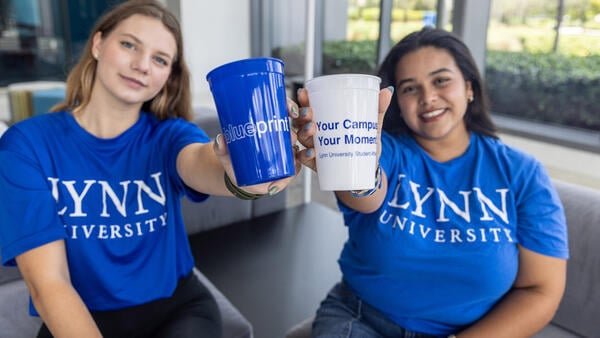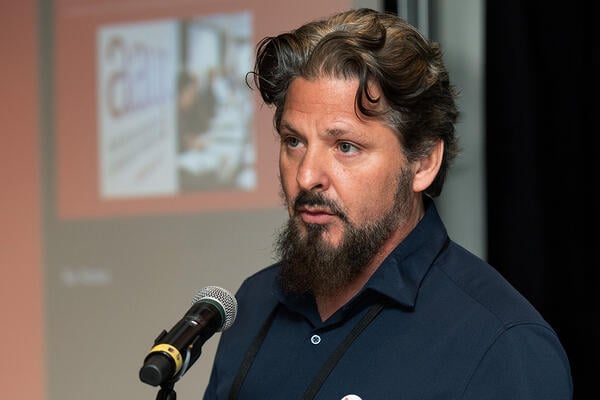Since 2020, faculty, staff and administrators have noticed a trend among incoming college students: They don’t know how to make friends. Data affirms this—fewer students said they studied with classmates, volunteered or participated in clubs or organizations in 2023 than in 2019, according to a 2025 report from the Student Experience in the Research University Consortium.
At the same time, student engagement and belonging correlate with academic success. Past surveys show that students who engage in extracurricular activities are more likely to feel that they belong on campus and that it’s easier to make friends. Extracurriculars can advance students’ career skills such as leadership and communication, as well as develop their professional interests.
The challenge for institutions, therefore, is how to reverse the trend toward disengagement and emphasize on-campus connections.
Some colleges are moving beyond offering free T-shirts and raffle prizes to encourage event attendance and moving straight to giving out cash, recognizing that finances are often the biggest barrier to student participation.
State of play: An August 2025 Student Voice survey by Inside Higher Ed and Generation Lab found that 36 percent of students have not participated in an extracurricular or co-curricular activity on campus. About one-third of students said they were involved in a few activities, and 17 percent said they were very involved in one activity.
Adult learners (65 percent) and two-year students were least likely to say they’ve participated in campus activities (64 percent), as were students who had dropped out for a semester (63 percent), students working at least 30 hours per week (55 percent), first-generation students (49 percent) and Hispanic students (48 percent).
The biggest hang-up for students: finances. As the costs of attending college continue to rise, a greater share of students work while enrolled. Seventy percent of Student Voice respondents said they hold a job in a typical semester, and 30 percent of those students work full-time.
When asked their top source of stress while in college, students pointed to balancing academics with other financial and personal obligations (50 percent) or paying for college (38 percent). An additional 22 percent indicated that paying for personal expenses was a top stressor.
Rather than ask students to choose between work or campus activities, administrators are creating avenues to pay students for certain university-led activities, such as attending workshops, engaging with support resources or investing in their health.
Points for participation: Lynn University in Boca Raton, Fla., is launching a points-based incentive program next spring, called Blueprint Rewards, that translates on-campus participation into scholarship dollars and discounts at the campus store. The initiative builds on previous investments in co-curriculars including a student-facing app, Blueprint, and digital badging, which were implemented in 2018 and 2021, respectively.
Under Blueprint Rewards, some campus events are designated as points-bearing in Blueprint, denoted by the abbreviation SET, for Student Engagement Transcript.
Each SET event is worth between one and 10 points. After reaching 20 points connected to a given theme, students unlock a badge. The six badges are loosely modeled on the National Association for Colleges and Employers’ career competencies: leadership, accountability, problem-solving, growth mindset, collaboration and adaptability.
For example, activities that count toward the growth mindset badge include participating in a mindfulness event (worth one point), attending a fitness center training (five points) or becoming a wellness educator on campus (10 points).
After completing one badge, students also earn $500 in scholarship dollars, which is applied to the following year’s tuition, making the program a retention strategy as well.
Students unlock scholarships and other rewards as they complete various badges in the Blueprint Rewards program.
Students can redeem up to $1,000 in badge dollars toward tuition each academic year. Administrators elected to cap badge scholarships at two per academic year to ensure students are juggling their academic and other responsibilities with campus participation, according to a FAQ page.
If they finish all six badges, students can opt to enroll in a no-tuition graduate-level course after their senior year, a value of $2,250.
If they complete three badges by the end of their junior year, students can gain an additional $1,500 toward participation in a faculty-led experience in the U.S. or abroad. The goal is to encourage study-away experiences, and the badges (adaptability, problem-solving and accountability) help make sure the student is adequately prepared for travel.
The program was announced Oct. 29, and full-time undergraduate students can start earning rewards in January. Since launching the digital badges in 2021, the university has seen the number of student engagements in co-curricular activities grow 65 percent, President Kevin Ross said.
“Blueprint Rewards builds on that momentum—helping students lower tuition costs while earning résumé-boosting credentials and scholarships that recognize their engagement and career readiness,” Ross said.
Another model: Administrators at Lynn aren’t the only campus officials using financial incentives to get students out of their dorm rooms and gaining life skills.
The University of Kentucky’s UK Invests both rewards students for engaging in health and wellness activities and provides financial literacy and investment education. The university dedicated $1 million for the first year and has received philanthropic support to continue awarding students money.
UK students who open a Fidelity savings account and deposit $25 are given $50 by the investment firm; each event they attend could be worth as much as an additional $50 in their accounts.
Student behaviors are tracked on three platforms—Handshake, SUMO and BBNvolved—and participation data is used to establish how much money the student earned, which is then deposited into the student’s Fidelity account. The university processes payments to student accounts every other Friday.
There is no cap on how much money a student can earn in a given year under UK Invests, but there is a limit to which events have financial incentives attached. For example, a student who uses the gym is paid $5 for visiting the gym three times in one week, but the student isn’t eligible to earn money after six weeks.
The goal for the university, in addition to encouraging students to take advantage of the various offerings on campus, is to ensure graduates leave with a return on investment for their degree and some cash in savings.
We bet your colleague would like this article, too. Send them this link to subscribe to our newsletter on Student Success.










